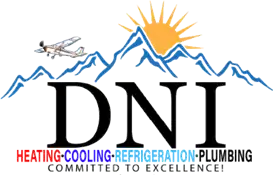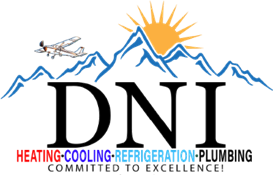
Winter Is Coming To An End: Should You Still Schedule Heating Maintenance in Longmont, CO?
In Longmont, CO, the weather doesn’t always follow a predictable script. While we all look forward to longer days and warmer afternoons, anyone who’s lived here for more than one season knows that spring can be full of surprises. One day it’s sunny and warm, and the next morning you might wake up to frost on your windshield—or even a late snowstorm.
Because of this, heating systems play an essential role not just during the heart of winter, but well into the early months of spring. That makes it all the more important to ensure your heating system is in good working order, even as the temperatures start to rise. You might be thinking, “Winter is almost over—should I still schedule heating maintenance?” The answer is a resounding yes.
Let’s explore why now is still a great time to book heating maintenance in Longmont, CO, what the process involves, and how regular maintenance can benefit your home, your health, and your wallet.
Why Heating Maintenance Still Matters After Winter
1. The Weather Is Unpredictable in Longmont
Longmont experiences a semi-arid climate, which means dramatic temperature shifts are part of life here. According to the National Weather Service, snow can—and often does—fall as late as May in parts of Northern Colorado. That means your heating system may still be in use for several weeks, even after the official end of winter.
If your furnace or heat pump is nearing the end of a long season of heavy use, scheduling maintenance now ensures that it’s prepared for any unexpected cold snaps.
2. Post-Winter Wear and Tear
Just like any machine that works overtime, your heating system experiences wear and tear after a long, cold winter. Filters get clogged, belts may wear down, and moving parts require lubrication. Dust and debris can accumulate inside the unit, impacting both efficiency and indoor air quality.
Skipping maintenance can lead to small issues going unnoticed until they become big problems—often when you least expect them.
What Happens During Heating Maintenance?
When you schedule professional heating maintenance with a trusted HVAC provider like DNI Heating, Cooling, Refrigeration, & Plumbing, Inc., you’re getting more than just a once-over of your system. Here’s what you can typically expect from a comprehensive service:
1. Thorough Inspection
A licensed technician will examine all key components of your heating system, including:
-
Heat exchangers
-
Blower motors
-
Burners
-
Electrical connections
-
Thermostat settings
This step helps identify any developing issues before they become expensive repairs.
2. Cleaning and Tune-Up
The technician will clean your unit thoroughly, ensuring that dirt and dust aren’t clogging up your system. Components like air filters, burners, and coils are cleared out, which helps improve airflow and system efficiency.
3. Testing for Efficiency and Safety
-
The system’s airflow will be tested to ensure it’s circulating air properly.
-
Carbon monoxide levels will be checked, especially in gas-powered furnaces.
-
The ignition system and safety controls will be examined.
According to the U.S. Department of Energy, regular HVAC maintenance can improve system efficiency by up to 15% and reduce the risk of carbon monoxide poisoning, which accounts for over 400 deaths and 50,000 emergency department visits in the U.S. each year.
The Financial Benefits of Spring Heating Maintenance
1. Lower Energy Bills
A well-maintained system uses less energy. According to Energy Star, regular HVAC maintenance can save homeowners up to 30% on energy bills annually. After a tough winter season, giving your system a tune-up can restore its peak performance and prevent unnecessary energy waste.
2. Avoid Costly Repairs
Catching small issues early means you can avoid larger, more expensive repairs down the line. In fact, the majority of major HVAC failures are due to a lack of regular maintenance. A $100 service call now could save you from a $1,000 repair next fall.
3. Extend Equipment Lifespan
With regular tune-ups, your heating system can last years longer than one that’s neglected. The average furnace lifespan is 15–20 years, but without maintenance, that number can drop significantly.
Your Indoor Air Quality Depends on It
Longmont’s spring is known for higher pollen levels and gusty winds, which means outdoor allergens can easily make their way inside. If your heating system is full of dust and debris, it can worsen indoor air quality—especially for those with allergies or respiratory issues.
A clean, well-maintained system with a fresh filter helps keep the air in your home cleaner, healthier, and more comfortable.
It’s Easier to Book HVAC Services in the Spring
Most homeowners wait until the first chill of fall to schedule heating maintenance, which is when HVAC companies are flooded with calls. Booking your service in early spring means:
-
Shorter wait times
-
More appointment flexibility
-
Time to address any issues without feeling rushed
Think of it like getting a head start—you’re not just maintaining your system for now; you’re getting ahead of the next heating season, too.
DIY vs. Professional Maintenance
While there are a few things homeowners can and should do—like replacing air filters every 1-3 months or keeping outdoor units clear of debris—most heating system maintenance should be left to certified HVAC professionals. Here’s why:
-
Safety: Working with gas lines, electrical components, and combustion chambers requires expertise.
-
Precision: Technicians use specialized tools to test airflow, gas pressure, and voltage.
-
Warranties: Skipping professional maintenance may void your manufacturer’s warranty.
In short, hiring a professional ensures that the job is done right and your system remains covered under warranty.
FAQs: Common Questions About Spring Heating Maintenance
Q: Is it too late to schedule maintenance in April or May?
Not at all. In fact, it’s a great time. Your system is winding down from winter, and HVAC providers usually have more availability.
Q: Should I maintain my heating system even if I’m switching to cooling soon?
Yes. Heating maintenance is about preparing your system for next season and fixing any wear from winter. Just like you wouldn’t put off changing the oil in your car, you shouldn’t delay heating system upkeep—even if it’s heading into hibernation.
Q: How long does a maintenance appointment take?
Most service visits take between 60 to 90 minutes, depending on the type and condition of your system.
Q: Can heating maintenance improve the resale value of my home?
Absolutely. A well-maintained HVAC system is a strong selling point. Buyers are more confident purchasing a home with a documented history of upkeep.
For HVAC Services in Longmont, CO, Contact DNI Heating, Cooling, Refrigeration, & Plumbing, Inc. Today
As winter fades and spring settles in, it’s easy to put your heating system out of mind—but now is actually one of the best times to schedule heating maintenance. Whether you want to improve energy efficiency, avoid surprise breakdowns, or simply breathe easier indoors, spring maintenance is a smart move for every Longmont homeowner.
At DNI Heating, Cooling, Refrigeration, & Plumbing, Inc., we’ve proudly served the Longmont community for years with professional, trustworthy HVAC services. Our licensed technicians provide thorough heating inspections, cleanings, and tune-ups tailored to your system’s unique needs. We’re here to help you keep your home comfortable—no matter the season.
Don’t wait for next winter to take care of your heating system.
Call DNI Heating, Cooling, Refrigeration, & Plumbing, Inc. today to schedule your spring maintenance appointment or to learn more about our preventative maintenance plans.
Your comfort is our priority, and we’re here to make sure you’re always one step ahead—because in Longmont, winter never says goodbye for long.

